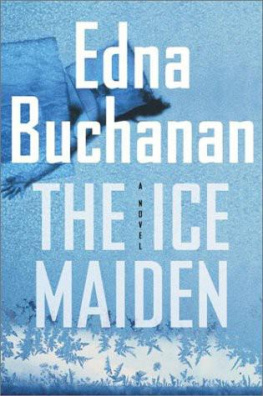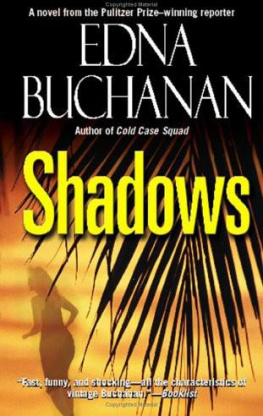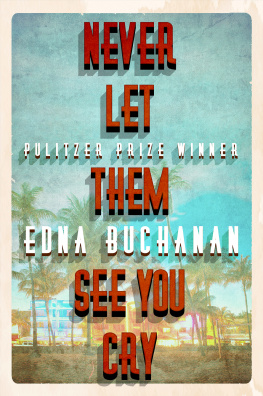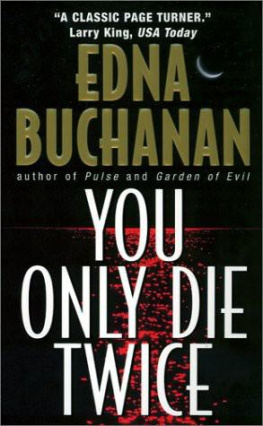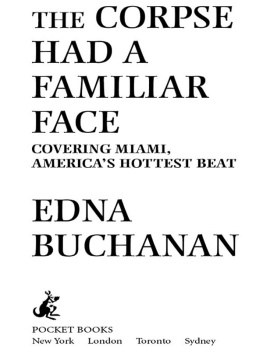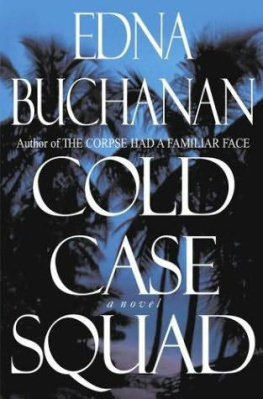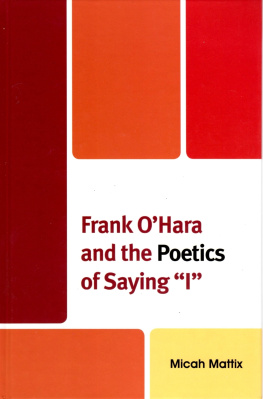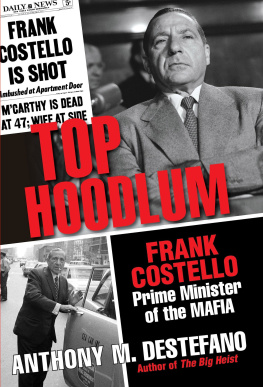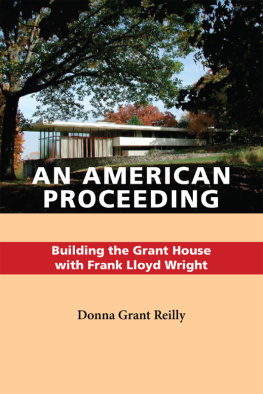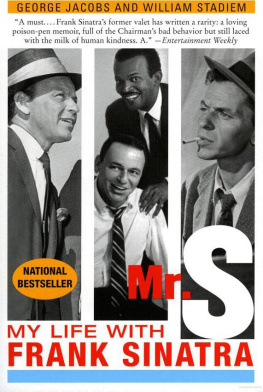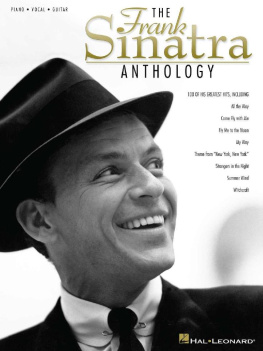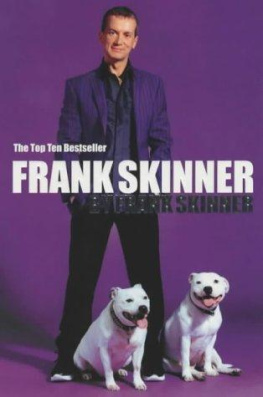EDNA
BUCHANAN
PULSE

For Ann Hughes,
true friend, free spirit,
and brave heart.
CONTENTS
S udden death saved his life.
His first conscious thoughts were not of that stranger whose death had saved him. Soon he would think of nothing else, but now, beyond the distant hums and hisses of the machines to which he was tethered, came only a single jubilant thought, I am alive!
He struck out for the surface, like a lethargic underwater swimmer, broke through and glimpsed his wife, Kathleen, and her sister, Ann, tearful at his bedside. Drifting, he sank back into sleeps warm embrace and dreamed again of running, fast, strong and light on his feet. This time he was not alone. He saw his companions shadow and heard the familiar sounds of footfalls and measured breathing as they matched one another stride for stride.
* * *
What Frank Douglas wanted for the next twenty-four hours was the respirator tube out of his throat. No one seemed upset when he managed to remove it himself the following day.
He forced himself from bed on the third day, obsessed about washing his hair. Two nurses helped him to the sink. There was a mirror. He needed a shave, his hair was wild and he felt light-headed, but his elation grew as he stared at his reflection. The difference was striking. His color had returned, his skin glowed, his lips were rosy. His new heart was working.
The incision was sore. No surprise there, his rib cage had been cracked open and his beating heart removed, for Gods sake. He wondered, but did not ask, what they had done with that battered and swollen organ. Despite its failure, it had brought him a long way. But heart transplant patients recover far faster, he knew, than recipients of other organs. The heart is a pump, the transplant team had told him. Thats all it is. Replace a failing pump with a new one and the system sings.
Tentative and uncertain at first, Frank trudged a hospital treadmill and was pedaling a stationary bike inside of a week.
While dying, he had slept like the dead, but now that he had been restored to the living, vivid and chaotic dreams invaded his sleep, disturbing visions he could not quite recall upon waking, leaving him with a driving need, a yearning rooted, he was certain, in his fervent desire to go home.
The heart biopsy came first. Blood tests will detect rejection of a liver or a kidney, they told him, but the only way to learn if a heart is being rejected is from the heart itself. Surgeons opened the big vein in his groin, threaded into the right side of the heart lining and cut away a snippet of tissuefor microscopic scrutiny. The news, after twenty-four hours, was excellent.
Determining the precise level for his immune suppressants required exquisite fine-tuning. Started on doses of powerful drugs, he was weaned away, monitored carefully as the combination was adjusted up, then down in a delicate balancing act.
His new heart filled with fear and relief when Kathleen came to take him home. He studied her carefully, as though she were a stranger. She wore a simple white shirtwaist and sandals, her chestnut hair pulled back and tied with a ribbon. He already wore an eighteen-karat gold bracelet stamped with a crimson heart that would instantly identify him to any medic as a transplant patient, a life member of The Mended Hearts, Inc. Tucked under his arm, a small black leather bag containing the medications vital to his survival, an impressive array of pharmaceuticals.
The fat gel capsules of cyclosporine, an immunosuppressant, were the big guns, backed up by another antirejection drug called Imuran and powerful steroids that would continue to be reduced gradually after weekly heart biopsies. Tiny blood pressure tabs called Captopril would counter their side effects. Antibiotics would guard his immune-suppressed system against infection, while big chalky purple pills protected his stomach lining. Strong vitamins and calcium would counteract the bone-weakening steroids, with more multivitamins, iron and folic acid to boost his bone marrow.
He was to swallow them with a glass of milk twice a day, every day, precisely at ten oclock, A.M . and P.M ., for as long as he lived. It was crucial to maintain the same levels of medication in his body at all times. He was to never leave home again without that leather bag. Patients had been lost aftermissing only several doses, he was warned. By the time they showed symptoms, they were dying.
The immunosuppressants were to be stored and dispensed at temperatures no higher than eighty-six degrees. He and Kathleen were told the cautionary tale about another successful transplant patient more than once. An avid sportsman, the man loved to hunt. He did, leaving his medication locked safely in the car, parked in the sun. He died.
Frank was also issued a wallet-sized card for emergency use at any pharmacy should he ever find himself without his medication. The irony was not lost on him. Until his illness, he was a man who took pride in never swallowing anything stronger than aspirin. Now his prescriptions were instantly accessible from a computerized national registry to be filled immediately. Anytime, anywhere.
Leaving the safety of the hospital excited and frightened him. So many times he had been sure he would never leave alive. He had arrived dying. He was running when it all began, pounding to the crest of the Rivo Alto drawbridge under Miamis teal blue sky, the water a turquoise shimmer, the brilliant day falling hot and humid around him. He had blamed summer heat and too much wine at dinner the night before for his unusual breathlessness. The bridge tender activated the caution lights and a forty-five-foot schooner hove to as warning bells sounded. The barrier gates slowly descended as he jogged in place, heart hammering as the bridge trembled and the span rumbled open. He checked his pulse rate on his runners watch, a twentieth-anniversary present from Kathleenand did a quick double take.
What the hell? He shook his head, droplets flying, as he squinted at the timepiece. Nearly new, the damn piece of junk had gone totally haywire.
The schooners mast glided by. Its captain signaled the allclear with two taps of his horn, the bridge shuddered and began its creaky descent. Gears ground, bells clanged, the span inched down, then locked into place. Stiff wooden arms rose and clogged traffic streamed by. Low-hanging clouds swirled as he trotted out onto the metal span, a red-hot sun ballooned, blistering the sky, and the cargo-loading gantries at the port loomed on stiltlike metal legs, ungainly monsters out of science fiction. Was the bridge opening again beneath him? Or did that trembling come from his own legs? His skull, as heavy as a bowling ball, dropped back on his shoulders. The roadway rose resoundingly to meet him. A startled motorist leaned on his horn.
The bridgetender called 911.
Kathleen arrived at the emergency room pale and frightened, wearing tennis whites and out of breath. He wanted to go home, but they insisted on tests, which led to other tests and eventually to bad news.
The word the cardiologist used was cardiomyopathy. No easy way to tell a man he is dying.
Kathleen cried and clung to him, closer than they had ever been. Calm and analytical, as always, he consulted experts, calculated the odds and scrutinized projections.
The finest cardiologist in South Florida said he would die without a heart transplant. He nearly did. Now, after a year of waiting, weakening, liquidating his business, arranging his affairs and his own funeral during a roller-coaster ride of near misses, disappointments and false alarms, he was leaving the hospital not only alive, but with a future, in a wheelchair he tried to refuse. Hospital policy prevailed and he was rolled out as required. He would return for heart biopsies once a week for six weeks. Eventually there would be one a year. At the last moment the hospital suddenly seemed safer and more secure, but that moment passed. Nothing could compareto the familiar warmth of the sun on his skin, and the moist kiss of exhaust-scented city air. He was different now, but they were the same. He didnt recognize the car Kathleen drove up onto the ramp. He had never seen it before.
Next page

